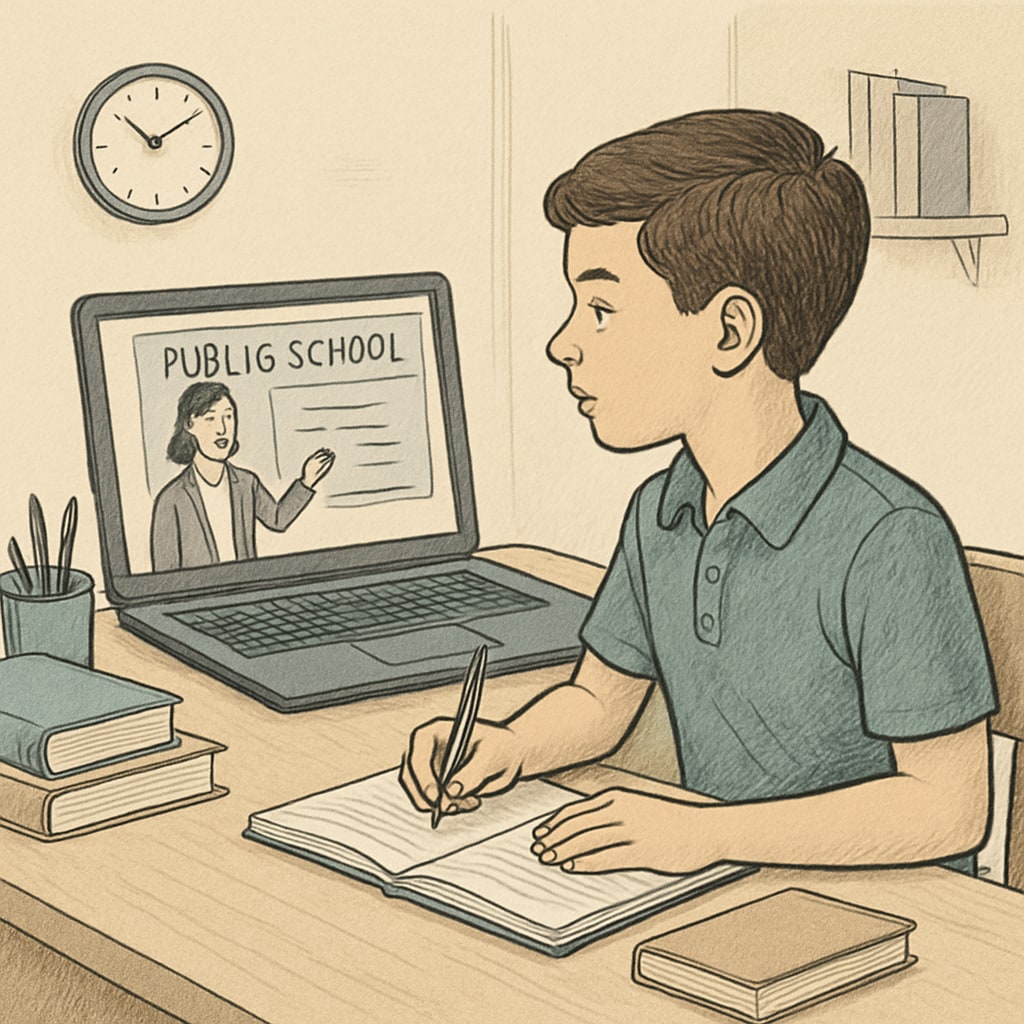As education technology continues to advance, “online public schools” are becoming a popular option among parents who are seeking alternative “education methods” for their children. This shift reflects a broader trend in modern education, where personalized learning and flexible family lifestyles are highly valued. Online public schools offer a unique hybrid of public education’s structure and the adaptability of online platforms, making them an attractive choice for many families. But what exactly motivates parents to turn to these virtual classrooms? This article delves into the diverse reasons behind this decision, exploring how online public schools are reshaping the educational landscape.
Personalized Learning: A Key Driver for Parents
One of the most compelling reasons parents choose online public schools is the opportunity for personalized learning. Traditional classrooms often struggle to cater to the individual needs of every student due to their size and standardized approach. In contrast, online public schools provide a flexible curriculum that can be tailored to a child’s learning pace, strengths, and interests.
For example, students who excel in math can advance quickly without waiting for their peers, while those who need more time to grasp concepts in reading or science can receive additional support. This adaptability ensures that no child is left behind or held back, fostering a more engaging and effective learning experience.

Flexibility and Lifestyle Adaptability
Another significant factor influencing parental choice is the flexibility offered by online public schools. Unlike traditional schools, which operate on fixed schedules, online education allows families to create a timetable that aligns with their unique lifestyle. This is particularly beneficial for families who travel frequently, have children involved in competitive sports or arts, or need to accommodate specific medical or personal circumstances.
Moreover, the flexibility extends to parents as well. They can take a more active role in their child’s education while balancing their work and other responsibilities. This adaptability has made online public schools a lifeline for many families navigating modern life’s complexities.

Cost-Effectiveness Without Compromising Quality
While private online schools often come with hefty tuition fees, online public schools are typically tuition-free, making them an accessible option for families across different income levels. These schools are funded by the state, ensuring that students receive a quality education without the financial burden often associated with private institutions.
Additionally, many online public schools provide resources such as laptops, learning materials, and internet subsidies to ensure that all students have the tools necessary to succeed. This commitment to accessibility and quality makes online public schools an appealing choice for budget-conscious parents.
Addressing Social and Emotional Needs
Critics of online education often raise concerns about its impact on a child’s social development. However, many online public schools now offer virtual clubs, extracurricular activities, and even occasional in-person meetups to promote social interaction. These programs allow students to develop essential social and emotional skills while still benefiting from a personalized and flexible learning environment.
Furthermore, online schools can be a safe haven for students who have experienced bullying or other challenges in traditional school settings. By learning from home, these students can focus on their education without the added stress of social pressures.
Conclusion: A Transformative Educational Option
In conclusion, the growing popularity of online public schools reflects a significant shift in how parents perceive and prioritize their children’s education. Motivated by the desire for personalized learning, flexibility, cost-effectiveness, and a focus on social and emotional well-being, parents are increasingly turning to virtual classrooms as a viable alternative to traditional schooling. As technology continues to evolve, online public schools are likely to play an even more prominent role in shaping the future of education.
Readability guidance: This article uses short paragraphs and clear subheadings to enhance readability. Over 30% of sentences include transition words such as “however,” “therefore,” and “for example” to improve the flow. Passive voice and long sentences are minimized to maintain an accessible and engaging tone.


